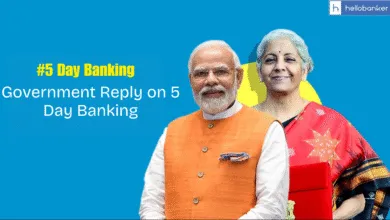RBI Allows 30 Countries to Open 156 Vostro Accounts for Rupee Trade

| ➡️ Get instant news updates on Whatsapp. Click here to join our Whatsapp Group. |
The Reserve Bank of India (RBI) has permitted 123 correspondent banks from 30 trading partner countries to open 156 Special Rupee Vostro Accounts (SRVAs) with 26 Indian banks. This move aims to promote trade settlements in local currencies, the government announced on Friday.
Boosting Rupee-Based Trade Settlements
The RBI has also established local currency settlement system arrangements with key trade partners such as the United Arab Emirates (UAE), Indonesia, and Maldives. These agreements allow trade transactions to be settled in local currencies, reducing dependence on the US dollar.
Minister of State for Commerce and Industry Jitin Prasada, in a written reply to the Rajya Sabha, stated that the initiative is designed to encourage exporters and importers to settle cross-border transactions in rupees. This will also enable the banking systems of trading partner countries to facilitate seamless transactions.
“As of today, RBI has permitted 123 correspondent banks from 30 trading partner countries to open a total of 156 SRVAs with 26 authorized dealer (AD) banks in India,” Prasada confirmed.
Government Efforts to Strengthen Local Currency Transactions
To increase the availability and acceptability of the Indian rupee in international trade, the government and RBI are working together to implement several measures. These efforts are expected to help exporters and importers invoice and pay in their respective domestic currencies, thereby facilitating the development of a bilateral foreign exchange market.
Free Trade Agreement (FTA) Negotiations in Progress
Addressing another query, Prasada stated that the negotiations for Free Trade Agreements (FTAs) with Oman, Australia, the UK, and the European Union are ongoing. The government is actively engaging with stakeholders, including industry representatives, to ensure that all concerns and requirements are addressed throughout the negotiation process.
Challenges in E-Commerce Exports Identified
On the topic of e-commerce exports, Prasada highlighted several key regulatory and logistical challenges affecting international shipments. These include:
- Delays in processing export orders from India to foreign destinations.
- Difficulties in handling returns and rejected shipments.
- High banking fees for reconciling export payments.
- Lack of financial products, such as export credit and insurance, for e-commerce exporters.
The minister assured that the government has identified possible solutions to address these challenges, with discussions underway between industry representatives and policymakers.
Conclusion
The RBI’s approval of 156 SRVAs marks a significant step towards promoting rupee-based trade settlements. Additionally, the government’s focus on trade agreements and e-commerce regulations reflects its commitment to boosting India’s global trade partnerships.
